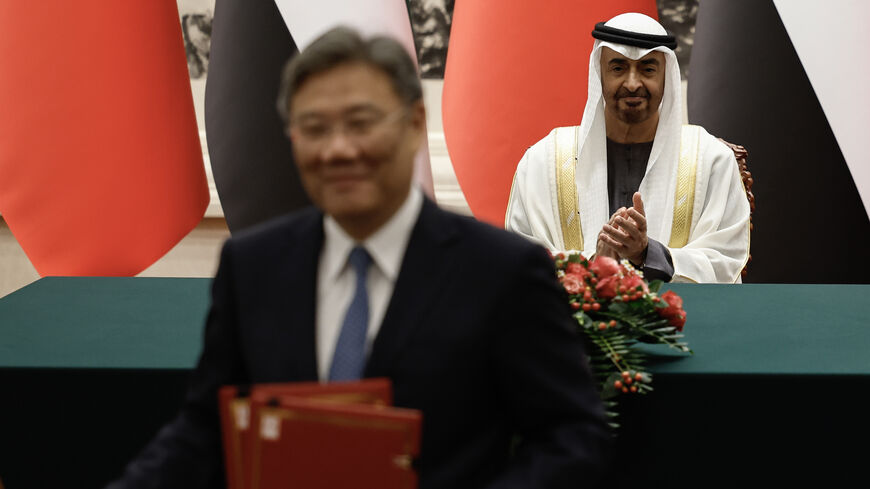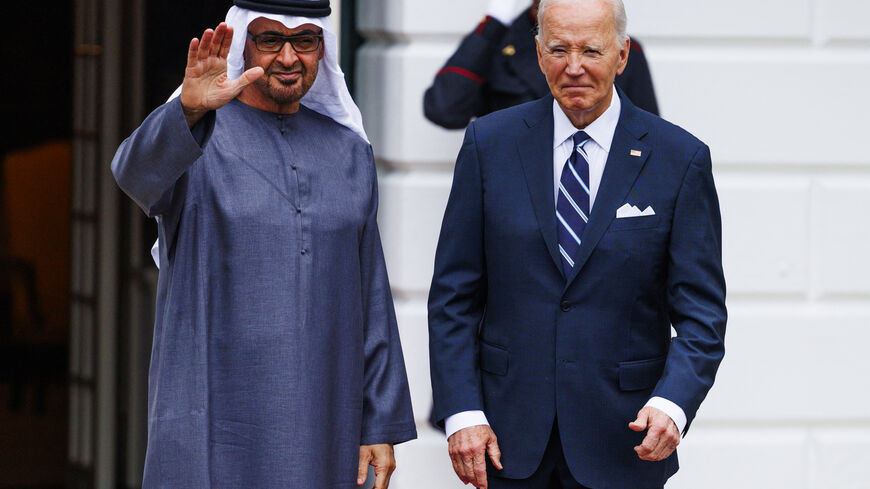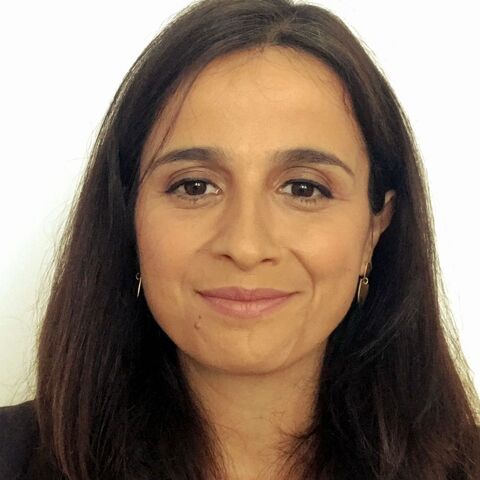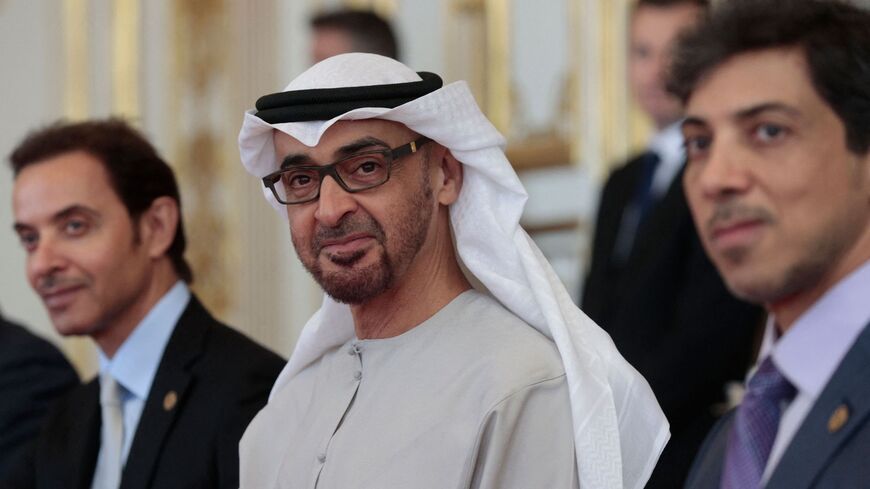China, UAE hold air force drills in Xinjiang as defense relations grow
The joint air force training exercise, dubbed Falcon Shield, began on Wednesday in the northwest Xinjiang province of China and will continue until late July.
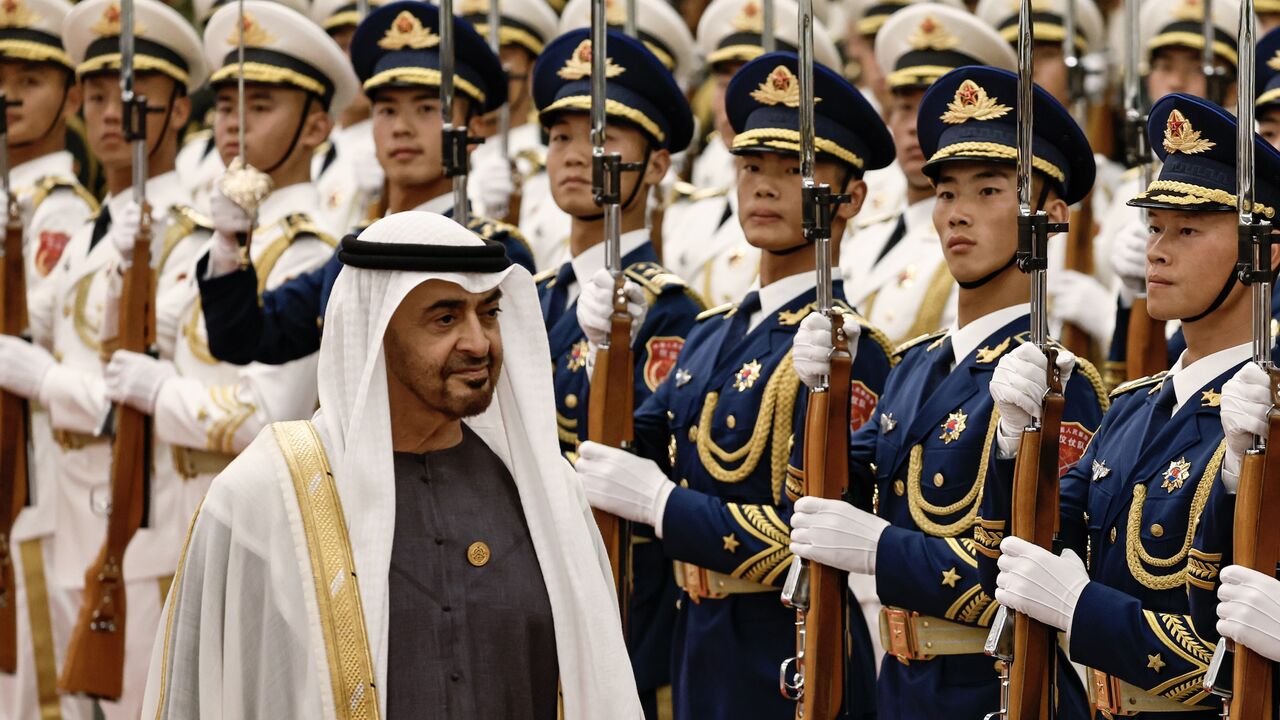
China and the United Arab Emirates are holding military training exercises this week in Xinjiang, as Emirati-Chinese defense ties see a boost despite US concerns.
The joint air force training exercise, dubbed Falcon Shield, began on Wednesday in the northwest Xinjiang province of China. Officers and soldiers from both countries attended the opening ceremony, including the UAE’s deputy military attache in China. The training will continue until late July, China’s official news agency Xinhua reported on Thursday.
The exercise is the second of its kind. The UAE and China held the first Falcon Shield exercise in 2023.
The Emirati government did not immediately comment on the start of the exercise.
Why it matters: The exercise builds on UAE's pursuit of strong military relations with China. UAE President Sheikh Mohammed bin Zayed Al Nahyan visited China in May upon an invitation from his Chinese counterpart, Xi Jinping. In a joint statement during the trip, the two countries praised the 2023 air force exercise and expressed their “keenness to hold joint exercises in the future to serve the common aspirations and goals of the two friendly countries.”
In April, Maj. Gen. Saleh Mohammed bin Majren Al Ameri, the Emirati military’s commander of joint operations, met the commander of the Chinese air force, Gen. Chang Dingqiu, in Beijing. The two discussed ways to develop mutual military cooperation, the official Emirates News Agency reported at the time.
The Emirati Defense Ministry announced a deal with the China National Aero-Technology Import & Export Corporation in 2022 for the purchase of 12 L-15 light attack planes.
The military-to-military ties between Abu Dhabi and Beijing are a growing concern for Washington. The Biden administration warned the UAE in 2021 about a suspected Chinese military base being built in the Gulf state, saying China’s presence would harm US-Emirati ties. Construction was halted after talks with US officials, The Wall Street Journal reported at the time. However, US spy services detected construction at the site in December of 2022, The Washington Post reported in April of last year.
China was the UAE’s largest trading partner in 2022, while the UAE was China’s biggest partner in the Arab world, the Emirati Ministry of Economy said in a statement last year.
Energy is a major part of the relationship. The UAE exported $17.4 billion in crude petroleum and $4.12 billion in petroleum gas to China in 2022, according to the Observatory of Economic Complexity. Last year, China bought liquefied natural gas from the UAE in yuan for the first time.
China notably backed the UAE in June in its dispute with Iran over the Abu Musa and the Greater and Lesser Tunbs islands in the Gulf. The move angered Iran but demonstrated the importance China places on the UAE in the economic and security realms, Sabena Siddiqui wrote for Al-Monitor at the time.
Know more: Xinjiang province, where the exercise took place, is home to China’s Uyghur Muslim community. China has been widely criticized for its treatment of Uyghurs and other Muslim minorities there. According to observers such as Human Rights Watch, China has detained up to a million Muslims in Xinjiang in recent years as part of its anti-terror campaign. The United Nations’ Human Rights Office released a report in 2022 detailing human rights issues in the region.
“The extent of arbitrary and discriminatory detention of members of Uyghur and other predominantly Muslim groups, pursuant to law and policy, in context of restrictions and deprivation more generally of fundamental rights enjoyed individually and collectively, may constitute international crimes, in particular crimes against humanity,” said the UN.
China rejected the report, with a Foreign Ministry spokesperson calling it “invalid and illegal,” CNN reported at the time.
Despite the international outcry, Muslim-majority countries, including the UAE, have mostly supported China’s actions in the region. Xi thanked then-Crown Prince Sheikh Mohammed for the UAE’s "valuable support" over Xinjiang during a 2019 meeting in Beijing. Sheikh Mohammed said the UAE "highly appreciates China's efforts to protect the rights and interests of ethnic minorities," Agence France-Presse reported, citing a readout from Chinese state media.



